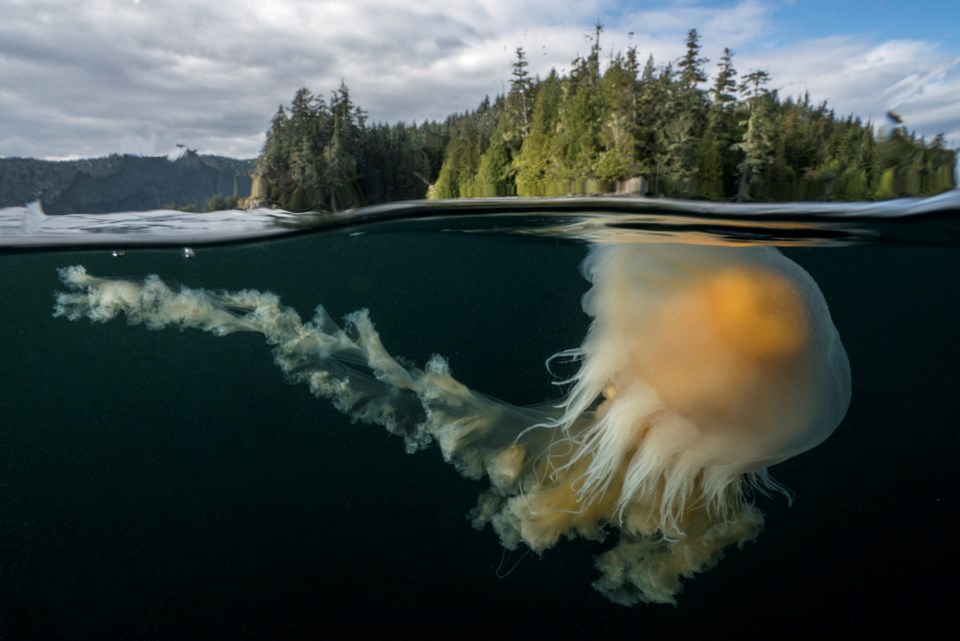In the summer, The Undercurrent had the privilege of speaking with Laurie Gourlay of Cedar, BC, about his efforts to have the Salish Sea protected as a UNESCO World Heritage Site. He was getting close, with more than 15,000 signatures on his petition for the cause. With Canada’s 150th year soon coming to a close, Parks Canada is expected to reveal its list of potential Canadian sites. Sadly, Gourlay will not be able to see the Salish Sea on that list, as he died unexpectedly on November 14.
According to his obituatuary, his family’s request is that in lieu of donations or flowers, people sign the House of Commons Petition E-1269. This was Laurie’s final push to see his World Heritage Site application recognized and the link can be found HERE.
Below is The Undercurrent article on Gourlay’s work, published July 21, 2017:
Back in 1987, Laurie Gourlay of Cedar, BC (just south of Nanaimo) was quoted in ‘Our Common Future’, the report by the United Nations World Commission on Environment and Development. This report famously coined the term “sustainable development” and was written with the aim of inciting urgent action to protect the global environment.
“I said that there should be sustainable community development to give individuals and communities help in implementing global goals,” says Gourlay. “They said the problem was too big, too urgent and that we didn’t have time for such small, incremental measures.”
The rejection of his perspective has not dampened Gourlay’s enthusiasm, however, and he has spent a majority of his past thirty years focusing on conservation, including marine protection in the waters around the Gulf Islands. His latest campaign spreads the net of impact a little wider, is almost a year old and yet again seeks recognition from the UN: he is trying to get the Salish Sea nominated as a World Heritage Site.
“When Federal Environment Minister Catherine McKenna announced that Canadians could nominate places to be considered as World Heritage Sites, I thought it was time to look at the larger Salish Sea,” says Gourlay. “There are so many implications in terms of both animals and toxins moving through regional waters. And the Salish Sea is so rich in terms of both natural and cultural heritage. This is a huge opportunity in that this recognition would allow for both cultural and natural values of the sea to be integrated.”
The Salish Sea, which stretches from Desolation Sound and Campbell River to the South End of Puget Sound and includes Howe Sound, is home to some eight million people and 3,000 species.
“Out of a thousand World Heritage Sites that currently exist, most are buildings. But there are other natural areas and still I would say that what exists here is unique. We’re talking about ten-thousand years of Coast Salish culture and an outstanding natural history, the two of which have been continuously interactive over time,” says Gourlay.
“People come here and are astounded, but I think maybe we get used to it when we live here. In fact, this is a very special place and we need to protect it.”
If the UN did pick the Salish Sea as a new World Heritage Site, Gourlay says there would be no new legal mechanisms in place to protect the body of water, but the designation would give British Columbia and Canada something to live up to in terms of global commitments.
“Wood Buffalo National Park in Northern Alberta is a World Heritage Site, and people sent concerns about contamination from energy development to the UN,” says Gourlay. “The UN, in-turn, sent inspectors who have made recommendations to industry and government. If those actions are not taken, the [World Heritage}status could be pulled. It’s like a reminder that you’ve promised to do something fabulous for the world, and a black mark if you can’t live up to that. The removal of the designation would create questions to government and the local tourism industry, which tends to benefit from the designation, about whether it is in fact a good place to go. That holds some real weight.”
Gourlay says it is his hope that this designation (which could take up to ten years to put in place) could help the Federal Government live up to its promises on ocean protection.
“In 2010, Canada promised to protect 10% of coastal waters under the International Convention on Biodiversity,” says Gourlay. “Right now, only 1% of our coastline in protected. Here, in the Salish Sea, we are seeing the area offer itself up once again as a habitat for humpacks and other whales. It would be fabulous if we could get that back. Regional protection can replenish the ocean and local environments, inspiring people to work harder and push for positive initiatives elsewhere.”
The organization Gourlay has put together in his bid to get the Salish Sea recognized by the UN is called the Salish Sea Trust, and it has already collected more than 15,000 letters of support. Their application to UNESCO has already been submitted, but they are still collecting letters of support from the public.
The Salish Sea is still being considered as part of Canada’s Tenative List of World Heritage Sites, ten of which will be announced by the Prime Minister in December.



